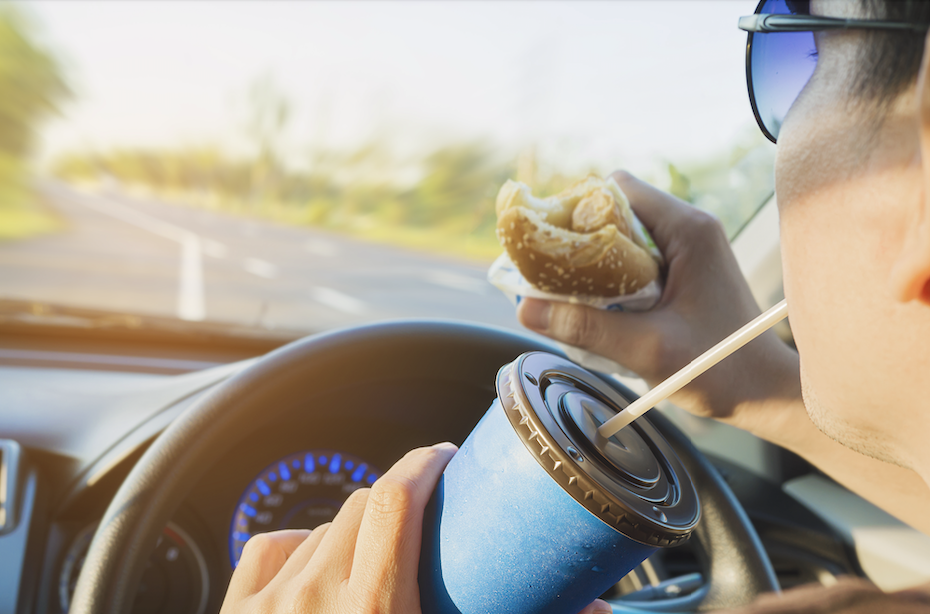Time to read : 4 Minutes
Despite our geographic breadth, many Australian roads are extremely busy.
According to the latest ABS figures, there are 20.1 million registered vehicles in the country – that’s almost one for every single person in Australia, including children.
Coupled with the fact that nearly two-thirds of licensed drivers aged 18 or over have been involved in at least one car accident[SJ1], you start to realise just how dangerous our roads actually are.
With young people more likely to get involved in road incidents than any others, there’s even a controversial new proposal to ban NSW men from driving until they are 21 years old.
What you need to know
👀 Road rules and laws are updated regularly – when was the last time you revised your state’s road rules?
📵 Even a momentary lapse in concentration can lead to serious injury or death while driving, with your risk of crashing 10x higher when using your mobile phone behind the wheel.
🛣️ It pays to be a predictable driver – always position your car in a way that other drivers can easily anticipate what you are doing.
🤓 Having good road-sense means recognising that you are at the mercy of other drivers while on the road.
What makes you a good driver?
So you never check your phone while driving, you always stay under the speed limit and you would never touch alcohol or drugs before getting into the driver’s seat. You must be a good driver, right?
Not necessarily!
✅ There’s a lot more to being a safe and competent driver than just doing the right thing.
Do you know the road rules? If it’s been a while since you got your licence, some of the road rules are bound to have changed. Did you know that in NSW you are now legally required to slow down to 40km/h when passing stationary emergency vehicles, and you must leave a gap of at least one metre when passing cyclists?
How good are your reverse-parking skills? It’s one of the most challenging driving manoeuvres, and just a moment of distraction could see you hitting in the gutter, driving into another parked car, or even striking a pedestrian.
Are you accident-aware? Are you prepared to follow the correct procedure in the event you are involved in a road accident? There are a number of legal obligations, such as turning on your hazard lights and providing your details to other people involved.
Be aware: While great for building your confidence on the road, research from RACV shows there is no sound evidence that defensive driving courses actually reduce the chance of being involved in a crash, especially for drivers who are already experienced.
Common signs of a dodgy driver: The ultimate bad-driving checklist
It’s hard to be introspective about your own driving capabilities, but knowing the signs of a bad driver can actually make you a safer presence behind the wheel.
👎🏽 Here are some questions that indicate bad driving habits – and worse – so answer honestly:
Do you often find yourself driving over the speed limit?
Do you ever use your phone when driving (i.e. not in hands-free mode)?
Have you lost points on your licence?
Have you ever lost your licence or had it suspended?
Have you driven while intoxicated – even if it was only a couple of drinks?
Do you wear headphones while driving?
Do you use your car’s media touchscreen while travelling at high speeds?
Are you a reactionary driver to others on the road?
Have passengers ever told you that you have road rage?
Do you tailgate slow drivers?
The three riskiest driving habits
If you answered ‘yes’ to any of the questions above, you’re not necessarily a bad driver but it does mean you’ve made poor choices in the past.
👮 To put things into perspective, here are the three riskiest – and most common – bad driving habits:
Driving tired or distracted: You are 10x more at risk of crashing when using your mobile phone while driving. Over the most recent reporting period, hundreds of people died on NSW roads due to fatigue, and thousands more were seriously injured.
Speeding: Speeding is the single-biggest contributor to death on the road in most Australian states and territories.
Driving under the influence: Young people are most at risk of death due to drink driving, with 33% of all fatalities involving drivers aged 17–24.
The bottom line
When you’re on the road, you’re at the mercy of other drivers.
And just because you think you’re a good driver, doesn’t mean you actually are. Ultimately, car safety isn’t just about you – it’s equally about the people you love and the strangers you share the road with.
Here are some proactive ways you can stay safe on the road:
🎙️ Be a great communicator: Always use your indicator, switch on your headlights, adjust your rear-view and side mirrors when necessary, and position your vehicle so that other drivers can easily predict what you are doing.
⚠️ Prepare for the worst: While 99% of the time nothing untoward will happen, it pays to prepare for all eventualities. Being a safe driver means having the confidence to anticipate and defend against potentially hazardous (or dangerous) incidents.
🚗 Keep your car in good shape: Never miss a car service, keep your car insurance up to date, regularly check the air in your tyres, keep your spare tyre and jack handy, and when the time comes make sure you upgrade to a safer car.
Read more:
Strategies to help you spot the hidden costs of buying a new car
It's all about the f-word for car owners when it comes to tax
La Nina's playing havoc with our car insurance as well as the weather
